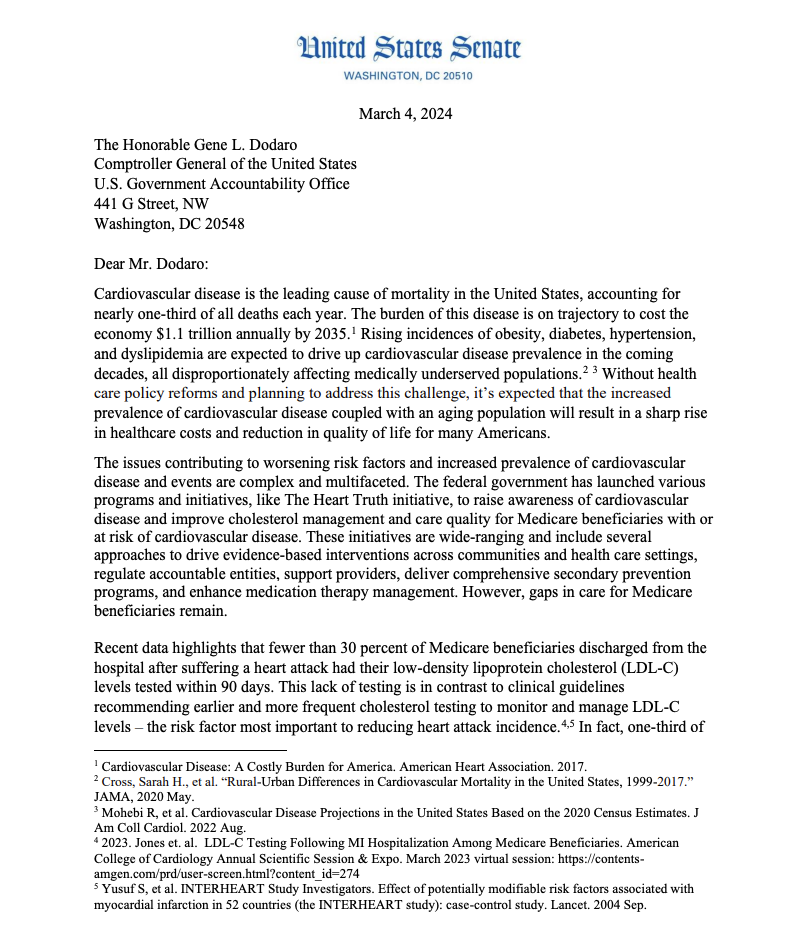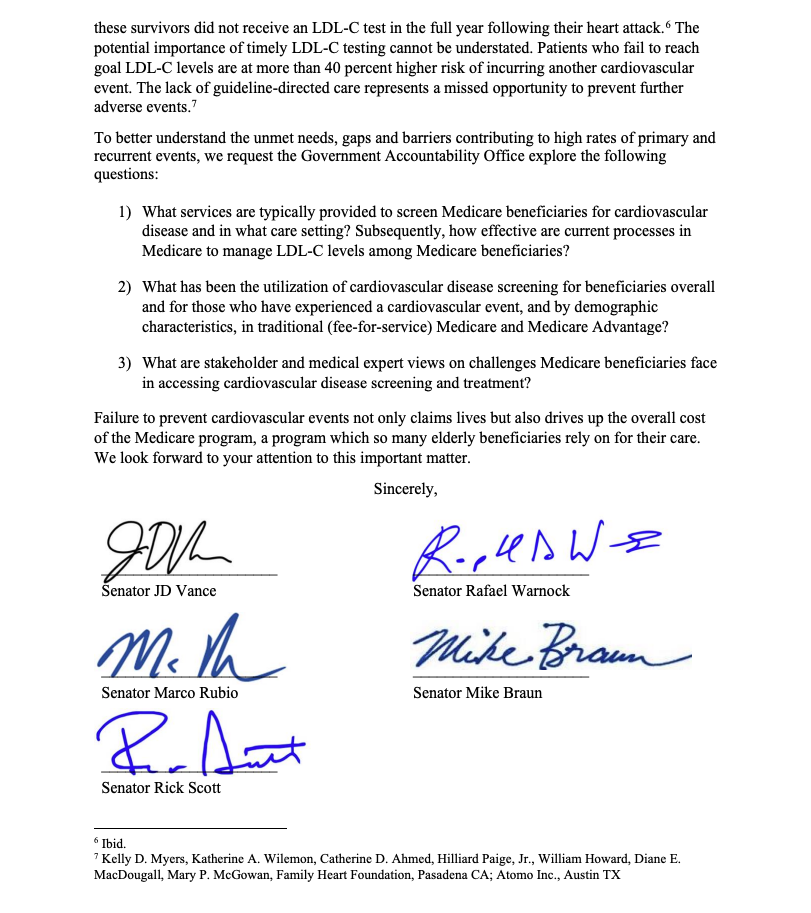“Without health care policy reforms and planning to address this challenge, it’s expected that the increased prevalence of cardiovascular disease coupled with an aging population will result in a sharp rise in healthcare costs and reduction in quality of life for many Americans.”
WASHINGTON, D.C. – Today, Senators JD Vance (R-OH) and Raphael Warnock (D-GA) sent a letter to Gene Dodaro, Comptroller General of the United States and head of the U.S. Government Accountability Office (GAO), to raise concerns over harmful gaps in cardiovascular care for Medicare beneficiaries. For example, fewer than 30 percent of Medicare beneficiaries who survive a heart attack receive low-density lipoprotein cholesterol (LDL-C) testing within 90 days, despite clinical guidelines which recommend earlier and more frequent LDL-C testing.
The letter poses questions to GAO on the cardiovascular screening services provided to Medicare beneficiaries regarding care settings, effectiveness, and utilization by demographic characteristics. Senators Vance and Warnock are joined in this effort by Senators Marco Rubio (R-FL), Mike Braun (R-IN), and Rick Scott (R-FL), all members of the Senate Special Committee on Aging.
The senators’ letter reads, in part:
“Cardiovascular disease is the leading cause of mortality in the United States, accounting for nearly one-third of all deaths each year. The burden of this disease is on trajectory to cost the economy $1.1 trillion annually by 2035. Rising incidences of obesity, diabetes, hypertension, and dyslipidemia are expected to drive up cardiovascular disease prevalence in the coming decades, all disproportionately affecting medically underserved populations. Without health care policy reforms and planning to address this challenge, it’s expected that the increased prevalence of cardiovascular disease coupled with an aging population will result in a sharp rise in healthcare costs and reduction in quality of life for many Americans …
“Recent data highlights that fewer than 30 percent of Medicare beneficiaries discharged from the hospital after suffering a heart attack had their low-density lipoprotein cholesterol (LDL-C) levels tested within 90 days. This lack of testing is in contrast to clinical guidelines recommending earlier and more frequent cholesterol testing to monitor and manage LDL-C levels – the risk factor most important to reducing heart attack incidence. In fact, one-third of these survivors did not receive an LDL-C test in the full year following their heart attack. The potential importance of timely LDL-C testing cannot be understated. Patients who fail to reach goal LDL-C levels are at more than 40 percent higher risk of incurring another cardiovascular event. The lack of guideline-directed care represents a missed opportunity to prevent further adverse events.”
Read the letter here and below.
###



